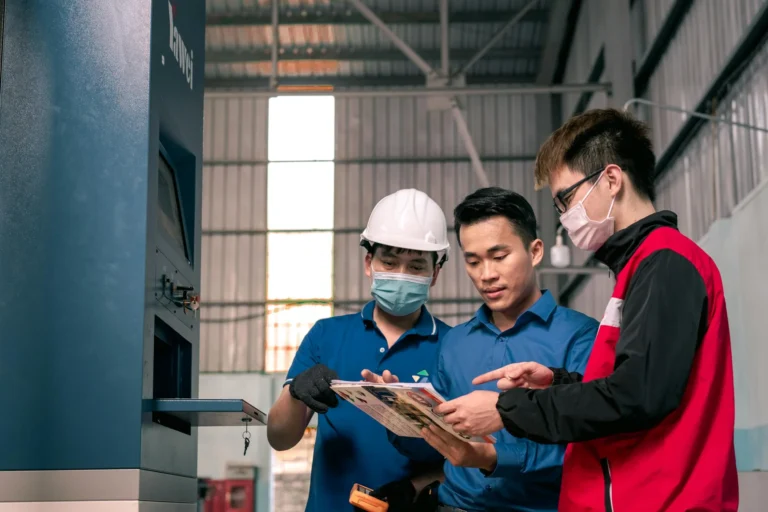In order to have a successful construction project, it is important to have a proper procurement planning in construction. By definition, procurement is the process of acquiring goods or services. In construction, this can refer to anything from materials and labour to equipment and services. A procurement plan outlines the specific items that need to be procured, as well as the timeline and budget for doing so.
There are many benefits to having a solid procurement plan in place. Perhaps most importantly, it can help to ensure that your construction project stays on track and on budget. When all of the necessary supplies and resources are procured in a timely and efficient manner, it can help avoid costly delays and disruptions. Additionally, a good procurement plan can help to ensure that you are getting the best possible value for your money. By taking the time to compare prices and vendors, you can be sure that you are getting the best deal on the materials and services that you need.
If you are starting to plan a construction project, be sure to give procurement the attention it deserves. Proper planning can make a big difference in the overall success of your project.

Factors to consider when creating a procurement plan:
1. Define the scope of work: The first step in any procurement process is to clearly define the scope of work. What exactly needs to be procured? When does this need to be done? By taking the time to answer these questions upfront, you can avoid potential problems later on.
2. Set a budget: Once you know what needs to be procured, it is important to set a realistic budget. How much can you afford to spend on materials and services? When setting your budget, be sure to factor in any potential discounts that may be available.
3. Research vendors: Once you have a clear understanding of what needs to be procured and
how much you can afford to spend, it is time to start researching vendors. When comparing vendors, be sure to consider factors such as price, quality, and customer service.
4. Create a timeline: In order to ensure that your construction project stays on track, it is important to create a timeline for the procurement process. When will each item need to be procured? What is the lead time for each vendor? By creating a detailed timeline, you can avoid potential delays later on.
5. Review contracts: Once you have selected a vendor, it is important to review the contract carefully. Be sure that you understand all of the terms and conditions before signing on the dotted line.
Avoid these issues in procurement planning:
Supplier-related issues in procurement
One of the most challenging aspects of procurement lies in supplier management. Companies need to identify the best suppliers, maintain a steady supply of high-quality materials, and assess supplier performance for a continuous business relationship potential. Suppliers need to be monitored in terms of the things they can deliver, the timeliness of the delivery, and the quality of the supply.
The following are some tips to avoid supplier-related issues in your procurement process:
1. Do your homework: Carefully vet all potential suppliers before entering into any agreements. Make sure you understand their capabilities and limitations.
2. Communicate clearly: Be clear about your expectations from the outset. This will help to avoid misunderstandings down the road.
3. Set clear guidelines: Establish clear guidelines for your suppliers in terms of quality, delivery, and pricing. This will help to ensure that everyone is on the same page from the start.
4. Monitor performance: Regularly monitor your supplier’s performance to ensure that they are meeting your expectations. Address any issues promptly and fairly.
5. Build relationships: Strong relationships with your suppliers are key to a successful procurement process. Take the time to get to know them and their business.

Material-related issues in procurement
In construction, even a small delay can cause major disruptions and cost overruns. One of the main causes of delays is material-related issues such as shortages, damage, or delays in delivery.
To avoid material-related issues in your procurement process, it is important to:
1. Understand your needs: Before you can procure the necessary materials, you need to have a clear understanding of what you need. Take the time to assess the specific requirements of your project.
2. Research suppliers: Not all suppliers are created equal. Be sure to do your homework and find a reputable supplier who can meet your needs.
3. Inspect materials: Once you have received the materials, be sure to inspect them carefully for any damage or defects. Do not hesitate to reject anything that does not meet your standards.
4. Store materials properly: Proper storage is essential to protecting your materials from damage. Be sure to store them in a safe, dry place.
5. Keep track of inventory: It is important to keep track of your materials so that you can order more as needed. This will help to avoid costly delays later on.
Inaccurate Data in procurement
As mentioned earlier, the accuracy of data is a huge factor when it comes to the decision-making process. For companies to be able to make sound procurement decisions, they need reliable and accurate data. Poor-quality procurement data causes all sorts of problems for an organisation, including excess inventory and inventory shortages, and inhibits the company from optimising the procurement process.
To avoid inaccurate data in your procurement process, it is important to:
1. Collect data manually: One of the best ways to ensure accurate data is to collect it manually. This may take more time upfront but will pay off in the long run.
2. Use multiple sources: Don’t rely on just one source for your data. Use multiple sources to cross-check information.
3. Clean and organise data: Be sure to clean and organise your data regularly. This will help to ensure that it is accurate and up-to-date.
4. Use software: There are many software programs available that can help you to manage your procurement data more effectively.
5. Hire experts: If you don’t have the time or expertise to manage your procurement data, consider hiring a specialist firm to do it for you.
These are just a few tips to help you avoid issues in your procurement process. By following these guidelines, you can ensure a smooth, efficient, and successful construction project.
How Wunderbuild can help in this. Book a demo now!



